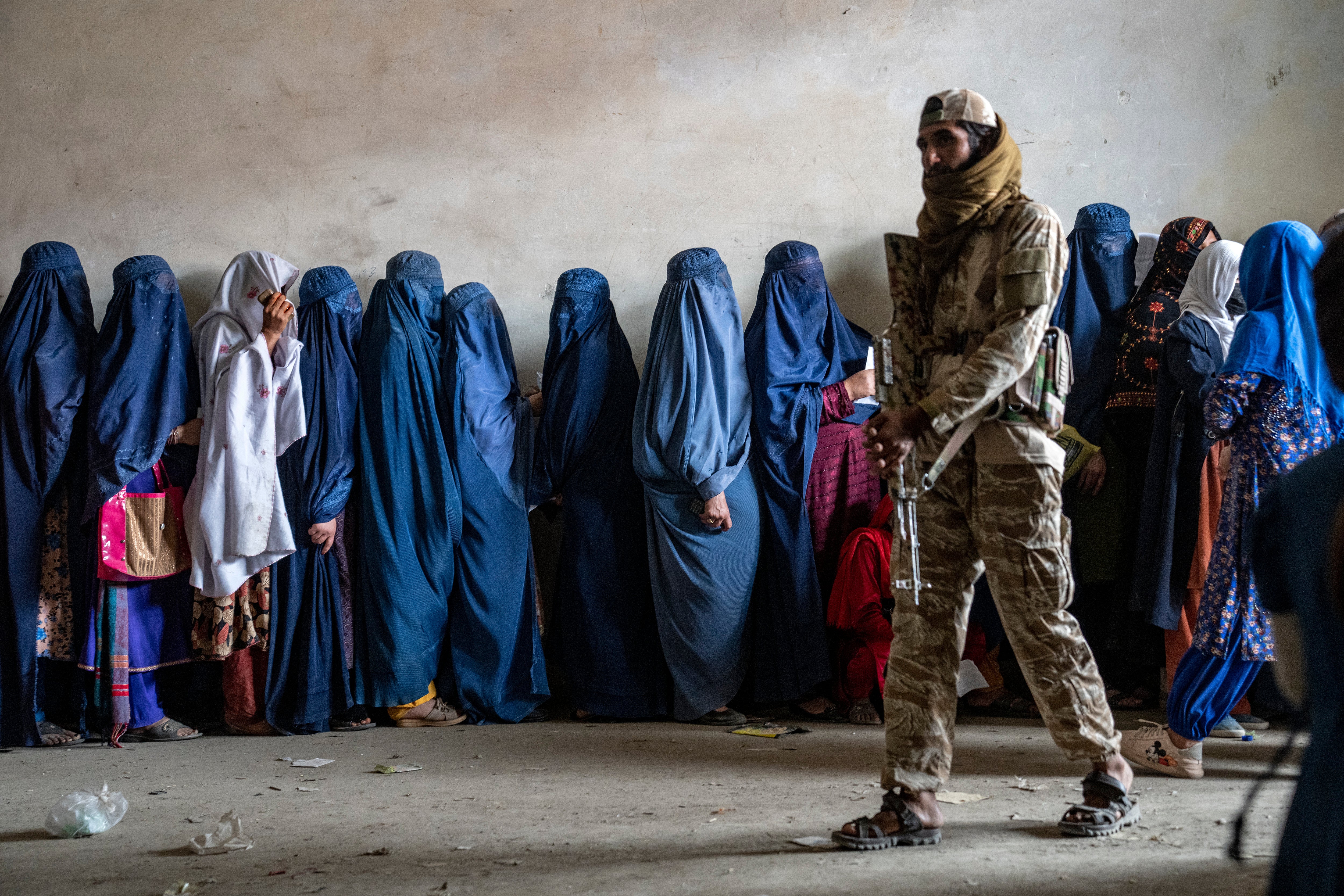Taliban enforcing restrictions on single and unaccompanied Afghan women, says UN report
A U.N. report says the Taliban are restricting Afghan women's access to work, travel and healthcare if they are unmarried or don't have a male guardian, a mahram

Your support helps us to tell the story
From reproductive rights to climate change to Big Tech, The Independent is on the ground when the story is developing. Whether it's investigating the financials of Elon Musk's pro-Trump PAC or producing our latest documentary, 'The A Word', which shines a light on the American women fighting for reproductive rights, we know how important it is to parse out the facts from the messaging.
At such a critical moment in US history, we need reporters on the ground. Your donation allows us to keep sending journalists to speak to both sides of the story.
The Independent is trusted by Americans across the entire political spectrum. And unlike many other quality news outlets, we choose not to lock Americans out of our reporting and analysis with paywalls. We believe quality journalism should be available to everyone, paid for by those who can afford it.
Your support makes all the difference.The Taliban are restricting Afghan women’s access to work, travel and healthcare if they are unmarried or don’t have a male guardian, according to a U.N report published Monday.
In one incident, officials from the Vice and Virtue Ministry advised a woman to get married if she wanted to keep her job at a healthcare facility, saying it was inappropriate for an unwed woman to work.
The Taliban have barred women from most areas of public life and stopped girls from going to school beyond the sixth grade as part of harsh measures they imposed after taking power in 2021, despite initially promising more moderate rule.
They have also shut down beauty parlors and started enforcing a dress code, arresting women who don't comply with their interpretation of hijab, or Islamic headscarf. In May 2022, the Taliban issued a decree calling for women to only show their eyes and recommending they wear the head-to-toe burqa, similar to restrictions during the Taliban’s previous rule between 1996 and 2001.
In its latest quarterly report, covering October to December last year, the U.N. mission in Afghanistan said the Taliban are cracking down on Afghan women who are single or don't have a male guardian, or mahram, accompanying them.
There are no official laws about male guardianship in Afghanistan, but the Taliban have said women cannot move around or travel a certain distance without a man who is related to her by blood or marriage.
Three female health care workers were detained last October because they were going to work without a mahram. They were released after their families signed a written guarantee that they would not repeat the act, the report said.
In Paktia province, the Vice and Virtue Ministry has stopped women without mahrams from accessing health facilities since December. It visits health facilities in the province to ensure compliance.
The ministry, which serves as the Taliban's morality police, is also enforcing hijab and mahram requirements when women visit public places, offices and education institutes through checkpoints and inspections.
In December, in Kandahar province, ministry officials visited a bus terminal to ensure women were not traveling long distances without mahrams and instructed bus drivers not to permit women to board without one, said the U.N.
Women have also been arrested for buying contraception, which the Taliban has not officially banned.
Nobody from the Vice and Virtue Ministry was immediately available for comment on the U.N. report.